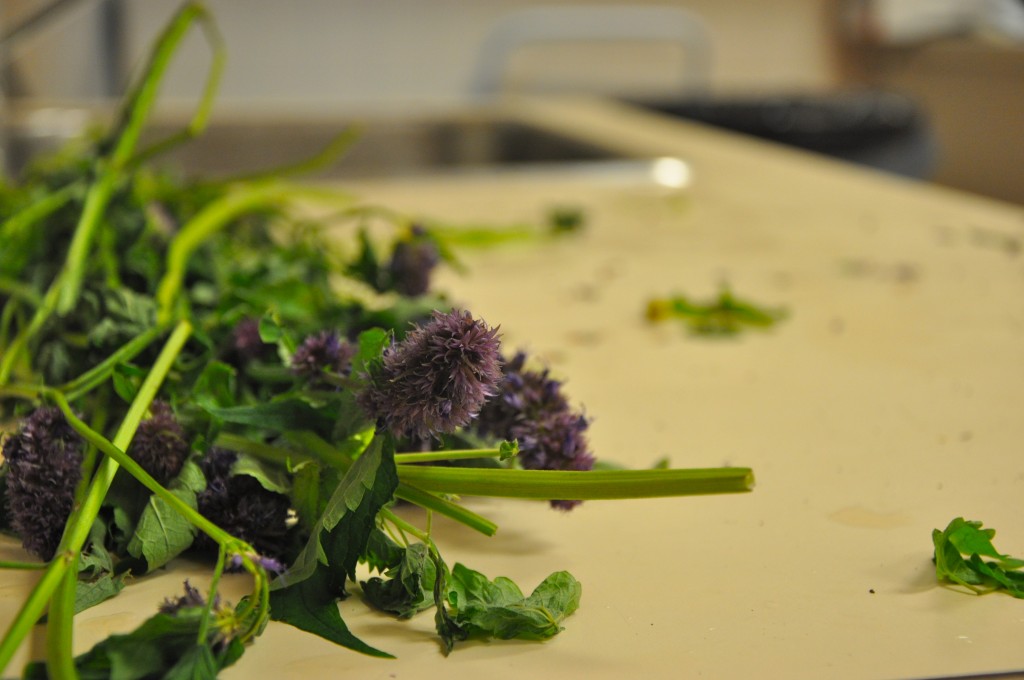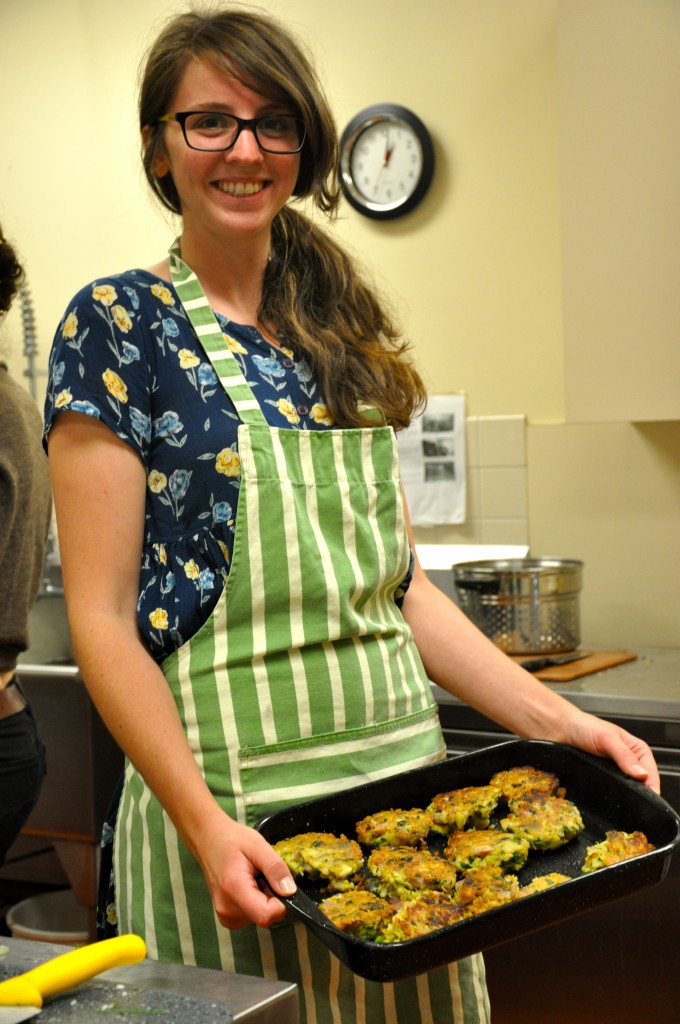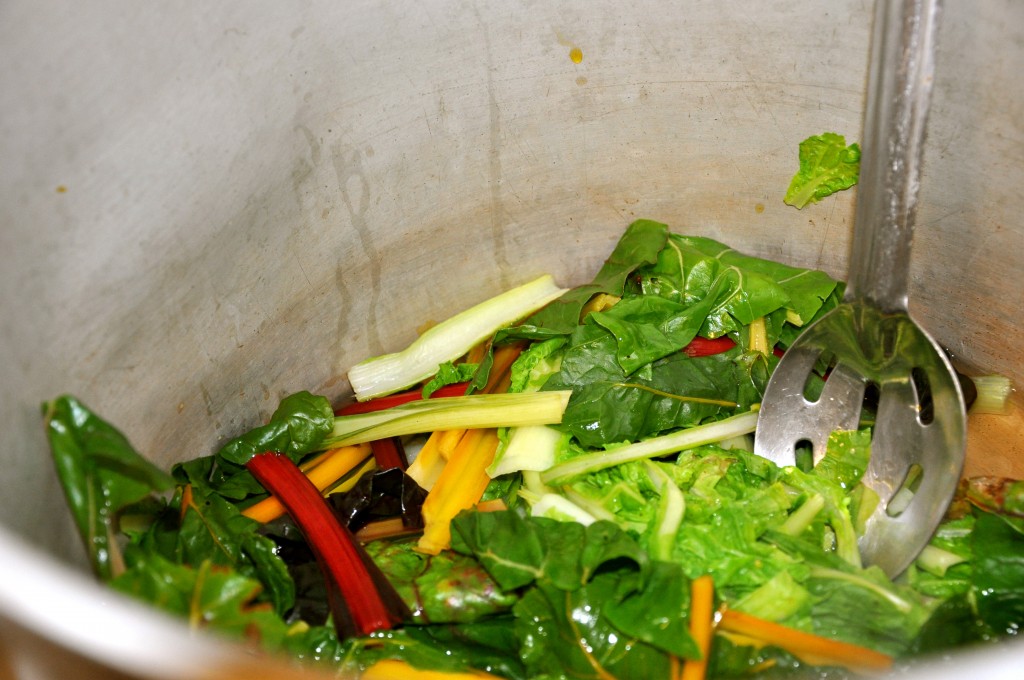This week has been a very productive one for our group! In addition to visiting the Institute for Aboriginal Health (IAH) garden last week, where we took many photographs and made observations, we were able to attend one of the monthly Feast Bowls that the IAH organizes. The IAH is an institute that was designed in order to improve the health of the Aboriginal people in British Columbia and increase their participation in health careers. One of their goals is to promote indigenous health knowledge and support their traditional health care system. The Feast Bowls are a perfect example of the collaboration between Western knowledge and traditional Aboriginal health, where traditional foods from many communities are put together in order to improve the health of the Aboriginal people while incorporating foods from their traditional diet.

Herbs fresh from the IAH Garden.
Attending the Feast Bowl, we learned about the purpose of the IAH garden and got to know some of the people we will be working with. We helped prepare fish cakes, tzatziki, bannock, steamed vegetables, and an apple crisp. We were shown how to use sweet cicely instead of sugar to sweeten the crisp. Sweet cicely is a local herbaceous plant that is usually considered a weed but it makes an excellent sugar substitute, especially for those with or at risk of diabetes. Almost all of the ingredients used were gathered from the IAH garden, so they were organic, fresh and made for an exceptional meal. Fortunately, there were a lot of volunteers, so the food was prepared relatively quickly and served to the crowd of about 30 people. Before sitting down to eat, we all joined hands and a prayer was given in a First Nations language. This helped to remind us of how much goes into a meal and that not to take any of it for granted. We also took this opportunity to speak with Hannah Lewis regarding future options for our project, including the database and some of the plants from the IAH garden.
We have learned many things during our project so far. We realized a need to define the term “traditional”, as we will be using it over the course of our project. “Traditional” can have different meanings depending on the context, but overall, it can be defined as an inherited and established or customary pattern in the way of thinking or behaving, associated with a particular culture. It is also the handing down of information, beliefs and customs from one generation to the other. “Tradition” is most commonly defined as cultural continuity in social attitudes and customs, but traditions are not necessarily specific to one location or culture. To many people the word “traditional” can come across as “old-fashioned”, when in fact it is highly flexible, constantly adapting just as cultures do.

Jen presents some of the amazing handmade fish-cakes.
Aboriginal communities of the Pacific Northwest, including those that we will be working with, traditionally relied mostly on fishing, foraging, hunting and forms of horticulture for sustenance. However, the IAH garden largely grows a mixture of cultivated crops that were introduced to these Aboriginal communities mostly by Europeans and have since been incorporated into their traditional cuisine. There are also some native plant species in the garden, and more are harvested from the natural forest ecosystems. The cultivated crops and the native plant species are both incorporated in the Aboriginal community lunches.
We look forward to seeing how the IAH garden promotes health through the use of food, which we expect will show a link between food and medicine. The Aboriginal populations in Canada have been using many major groups of plants as medicine, and through the IAH garden, this knowledge can be shared within the community by harvesting native plants and using them in the lunch program as well as for other means. We hope that our database will be able to spread this knowledge even further!

